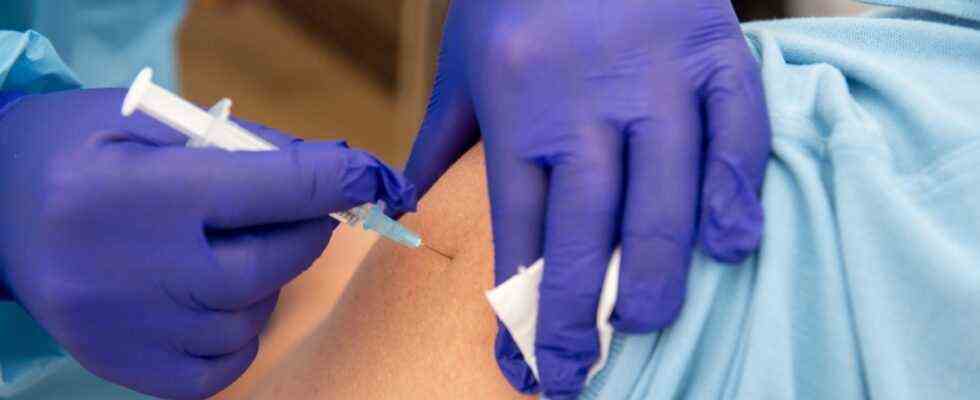The increasing number of corona cases is putting the clinics in Bavaria under increasing pressure. Hospitals in six of the seven Bavarian administrative districts now have to cancel all non-medically necessary operations. In Upper Bavaria, the government issued a corresponding instruction on Wednesday, and in Lower Franconia a government spokesman announced that an order would probably be issued on Thursday. So far, the Upper Palatinate has been excluded, but the government is also closely monitoring the situation there. The decision is intended to ensure that patients are treated in the hospitals.
In all of Bavaria, the number of Covid intensive care patients has recently risen rapidly: on September 1, according to the intensive care register, it was 169, on November 1, 437 – and now almost doubled within two weeks. According to the Bavarian State Office for Health and Food Safety (LGL), the incidence on Thursday was 1468.9 – among the non-vaccinated people. That is a plus of more than 500 on a weekly basis. Among those who were fully vaccinated, the incidence is much lower at 109.7 and grew significantly more slowly with a plus of 12.
At the same time, according to the Robert Koch Institute (RKI), the vaccination rate in Bavaria is significantly lower than in the nationwide comparison. In the case of the front runner Bremen, for example, it is currently the highest at 79.4 percent of those who have been completely vaccinated (not: three-times vaccinated). In the Free State it is only 65.8 percent. What about the vaccination progress in the particularly affected southern districts?
Numbers are hard to come by – a problem from the vaccination summer: The very attractive range of mobile vaccination teams, vaccination buses and vaccination centers now ensures that the individual districts do not have precise data on the vaccination rate. Because anyone who lives in a district does not necessarily have to be vaccinated there. Because the place of residence is not communicated, there is currently no binding statement about the vaccination coverage of the districts, reports the State Office for Health (LGL). The vaccination doses administered per district are recorded. Carina Weinzierl, spokeswoman for the Landshut district, confirms: “Due to the flexible vaccination options, the data situation is not meaningful for the respective district. In a district like Landshut, the district-free town of Landshut is added, which means that the boundaries are once again blurred.”
If you ask those who are busy vaccinating on a day-to-day basis, even in counties with extremely high incidences, there is sometimes an increased willingness to vaccinate again. For example in Freyung in Lower Bavaria. The Freyung-Grafenau district currently has an incidence of 1276 – one of the highest in Bavaria (the Rottal-Inn district is currently the negative leader with 1298). In the Gahbauer general practitioner practice in Freyung, initial vaccinations have been given in the last few days, says practice secretary Alexandra Eder of the SZ. In addition, the demand for booster vaccinations is very high.
In the Unterallgäu a similar picture: There is a significantly increased demand, both for first vaccinations – but especially for booster, says district administrator Eva Büchele. From next week on, there will be appointments at the vaccination center in Bad Wörishofen, as in many other places in Bavaria, the rush was too big recently, the queues too long. In the Unterallgäu, more and more mobile vaccination teams are to move out to club houses and town halls. The pressure is enormous, says Büchele, the biggest problem is getting the staff together. It cannot be clearly determined whether the increased willingness to vaccinate is related to the high incidence or was triggered by the extensive 2G regulations.
Roland Brey sees a run on booster vaccinations coming. The head of the health department in Amberg in the Upper Palatinate would therefore have liked a prioritization. “Fortunately, we have never shut down our vaccination centers completely,” he says. Brey does not want to hear anything about relaxation either – although the city of Amberg currently has the lowest incidence in Bavaria at 209. Brey explains it like this: You are making good progress with vaccination, you have fewer vaccine skeptics than in southern Bavaria, for example – the vaccination rate is currently 68.32, slightly above the Bavarian average. In addition, the delta variant in Amberg spread earlier. Many people were infected with it in August, recovered and now still have immune protection. But Brey also emphasizes that more is needed than increased vaccination: contact restrictions. Everyone has to ask themselves: Do I really have to go to the party or do I have to celebrate the birthday in a big way?

